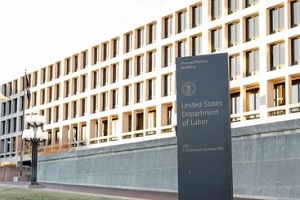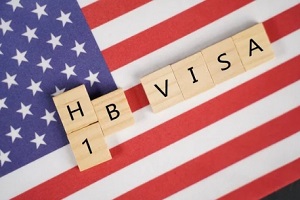 Understanding the complex web of immigration laws can be quite overwhelming, especially when your legal status in the country is bound to your employment. An employment-based green card acts as a license for foreign nationals to live and work in the United States. But what transpires if you are unexpectedly out of work?
Understanding the complex web of immigration laws can be quite overwhelming, especially when your legal status in the country is bound to your employment. An employment-based green card acts as a license for foreign nationals to live and work in the United States. But what transpires if you are unexpectedly out of work?
This article aims to clarify this intricate topic.
Understanding the Employment-Based Green Card
An employment-based green card, as implied by its name, is granted to foreign nationals who have obtained permanent employment in the U.S. There are several categories under this type of green card, each designed to accommodate different professional tiers and skill sets.
- EB-1 Category: This category is designated for individuals with extraordinary talent in the realms of arts, science, education, business, or athletics. It also caters to distinguished professors, researchers, and certain multinational managers and executives.
- EB-2 Category: The EB-2 category is tailored for professionals possessing advanced degrees (beyond a bachelor’s degree), or a bachelor’s degree and at least five years of progressive experience in their profession, and individuals of exceptional ability in the arts, sciences, or business.
- EB-3 Category: This category is aimed at skilled workers with a minimum of two years of training or experience, professionals with a bachelor’s degree, and other workers with less than two years of training or experience.
Each of these categories has its unique set of qualifications and requirements, presenting a variety of options for foreign nationals aspiring to establish their lives in the United States.
Unraveling the Impact of Job Loss
Experiencing job loss can be a traumatic event for anyone, but for individuals possessing an employment-based green card, it can also raise alarm bells about their immigration status.
As a general rule, if you lose your job before your green card application is approved, your eligibility may be at risk. However, the specific repercussions are largely contingent on the stage of your application process.
 Stage 1 – Labor Certification: Losing your job during this stage can pose serious challenges. The Department of Labor (DOL) has to certify that there are no qualified U.S. workers available for the position you’ve been offered. If you lose your job at this juncture, the DOL certification becomes invalid because it’s tied to the specific employer and job. This means that if you secure another job, the certification process would need to start over.
Stage 1 – Labor Certification: Losing your job during this stage can pose serious challenges. The Department of Labor (DOL) has to certify that there are no qualified U.S. workers available for the position you’ve been offered. If you lose your job at this juncture, the DOL certification becomes invalid because it’s tied to the specific employer and job. This means that if you secure another job, the certification process would need to start over.- Stage 2 – I-140 Petition: If your job is terminated during this phase, the situation becomes more intricate. If the I-140 petition has been approved and has remained valid for 180 days or more, it will not be automatically revoked if you lose your job. This allows you some leeway to continue with the final stage of the green card process. However, you’ll need to find a new job in the same or similar occupational classification to keep your application active.
- Stage 3 – Adjustment of Status: If you lose your job during this phase, after your I-485 form (Adjustment of Status) has been pending for 180 days or more, you are given the liberty to change jobs or employers while still maintaining your green card eligibility. However, it’s crucial to note that the new job must be within the same or similar occupational classification as your previous job.
Each stage presents its unique set of challenges, but with the right guidance and resources, you can navigate these hurdles and stay on track towards achieving permanent residency in the U.S.
The 180-Day Rule
An important provision to consider is the 180-day rule. If your I-140 petition has been approved, and your I-485 has been pending for at least 180 days, you can change jobs without affecting your green card application. However, the new job must be similar to the one specified in the I-140 petition.
Protection under the AC21 Act
The American Competitiveness in the Twenty-First Century Act (AC21) offers some safeguards for individuals who lose their job while waiting for a green card.
Under AC21, if your I-485 has been pending for 180 days or more, and your I-140 is approved, you can change jobs or employers without invalidating these forms. The new job must be in the same or a similar occupational classification.
Reach Out to a Northern Virginia Immigration Lawyer
Experiencing job loss while on an employment-based green card can undoubtedly trigger a wave of anxiety and uncertainty. However, even in such challenging circumstances, there are numerous potential pathways to explore.
Open-minded employers might still entertain candidates with expired employment-based green cards, and there’s a variety of other visa options depending on one’s personal situation (such as family visas or leveraging a spouse’s green card).
 If possible, there are also alternatives that involve reverting to another type of work visa like an H1B, or functioning as a cross-border commuter for those unable to sustain permanent residency.
If possible, there are also alternatives that involve reverting to another type of work visa like an H1B, or functioning as a cross-border commuter for those unable to sustain permanent residency.
Regardless of the chosen path following job loss on an employment-based green card, it’s crucial to invest time in thoroughly researching each option to identify the most suitable solution.
While this predicament can be daunting and disconcerting, individuals should remain hopeful – more often than not, they’ll be able to navigate through the situation and regain stability in due course.
Don’t let the fear of losing your job jeopardize your peace of mind or your status in the United States. If you’re navigating through the complex landscape of employment-based green cards and facing job loss, remember that you don’t have to do it alone.
Contact Pride Immigration today. Our team of experienced immigration attorneys can provide you with the guidance and legal advice necessary to navigate this challenging situation.
We are committed to helping you understand your rights and options.
Don’t wait until it’s too late. Take the first step towards securing your future in the U.S. and contact Pride Immigration at (703) 594-4040 today.
Beeraj Patel, Esq.
Latest posts by Beeraj Patel, Esq. (see all)
- How Immigration Attorneys Fight for Your Rights - July 15, 2024
- Why Green Cards Expire and How to Renew Them - July 1, 2024
- How PERM Labor Certification Opens Doors to Permanent Residency - June 24, 2024
